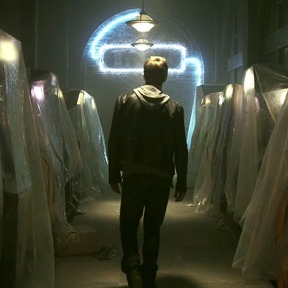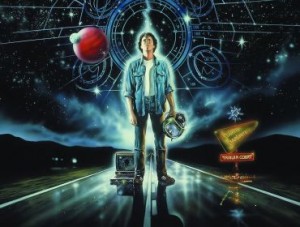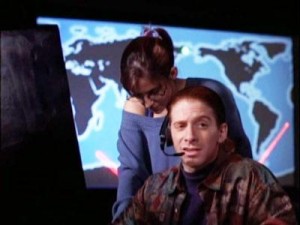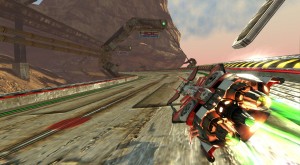PlayStation Home: the Case For More Games
by NorseGamer, HSM Editor-in-Chief
If you’d have asked me, a year ago, to write something with this headline, I probably would have pointed and laughed at you.
Yes, HSM is a Sony-positive publication as well as a Home-positive publication. But that hasn’t stopped us from lobbing quite a bit of constructive criticism over the net towards Sony’s end of the court. In particular, as this publication is devoted to examining Home from a social standpoint, we have collectively clamored at the top of our lungs for improvements to the social interface of Home. This will not stop. The business logic is simple: the more immersive the experience of using Home itself is, the more likely people are to explore and spend money inside it.
That said, many of the more socially-minded users feel alienated from Home because it has made such an overt shift towards being a gaming platform, with an increased emphasis on commercial elements. The fact that Home has always been a for-profit commercial venture is irrelevant; the perception is that that’s all there is to it any more. That it has no soul. And thus it’s easy to point fingers at the increasing number of games and say that this is bad, Home’s going down the wrong path, et cetera.
I disagree.
The biggest reason why games are important to Home is because it neatly overcomes the perception that “there’s nothing to do in Home.” Remember, Home exists on a gaming console; this isn’t a PC program that people choose to download because they specifically want that experience. This is a free program that’s bundled into the PS3, which serves as a brand ambassador even when someone doesn’t have a single disc title to play.
Where this really hit home for me: recently, I was attempting to describe the Home experience to my elder brother. He’s a smart guy — capable of coding in multiple languages, and a hardcore gamer to boot — and he naturally asked, “So…what exactly do you do in Home?”
Frankly, I think he was more interested in trying to distract me from the recent loss of the Norsecat, which has me all sorts of torn up. But, hey, I’m passionate about the Sony gaming world, so I took the opportunity. And something odd happened.
I found myself describing Home to him in gaming terms.
 “Oh man, lemme show ya Cutthroats,” I told him. “A multiplayer internet game with no lag!” So I sailed around the cove and sank people for a while. Then we checked out both Sodium Games, Novus Prime, Dragon’s Green, a couple of Total Game Integrations…you get the point.
“Oh man, lemme show ya Cutthroats,” I told him. “A multiplayer internet game with no lag!” So I sailed around the cove and sank people for a while. Then we checked out both Sodium Games, Novus Prime, Dragon’s Green, a couple of Total Game Integrations…you get the point.
“And this is all free?” He asked.
“Yup,” I replied. “Most of these games have freemium elements of varying types, but none of them require any sort of up-front financial investment beyond owning the console and having an internet connection.”
“This is definitely a lot cooler than I thought it was,” he replied.
It was then that I realized I hadn’t touched on the social elements of Home at all. Not once. I run a publication devoted to studying Home as a virtual society, and I hadn’t gone into any detail about Home as a social network for gamers. I simply went straight to the games. And it was the games that sold him on checking it out further.
That’s when I realized just how important the gaming experiences are to Home. Because it’s games that sell Home, not socializing.
Before you burn me at the stake for heresy, let’s use a real-world example: the video arcade.
 Most of you reading this are old enough to have enjoyed the experience of a video arcade. And I’ll wager a good number of you remember the heyday of the video arcade, back before advances in console technology and televisions effectively killed the arcade. For me, having grown up in the San Francisco peninsula, there were two hotspots: Malibu Castle Golf and Games, and — further away, but incredibly fun — the Santa Cruz Beach Boardwalk.
Most of you reading this are old enough to have enjoyed the experience of a video arcade. And I’ll wager a good number of you remember the heyday of the video arcade, back before advances in console technology and televisions effectively killed the arcade. For me, having grown up in the San Francisco peninsula, there were two hotspots: Malibu Castle Golf and Games, and — further away, but incredibly fun — the Santa Cruz Beach Boardwalk.
Many, many childhood hours — entire days — were swallowed up in those video arcades. God, they were fun. It was the unique combination of games and social atmosphere that made it so addictive. And I’m sorry, but most of today’s internet gaming doesn’t even come close. The problem with the internet is that people are safely anonymous and face no danger of physical violence, which leads to the most disgusting behavior. In a real, tangible video arcade, this problem doesn’t exist.
Go back and rewatch the original TRON. The scenes at Flynn’s Arcade. My god, those were fun days. If you were around for it, then you remember the social scene that developed because of the games. It was, quite simply, wonderful.
I was recently chatting with HearItWow, and he really nailed it on the head when he pointed out that Home is the closest we can get to a modern-day equivalent of the classic video arcade: the social scene which emerges out of communal gaming venues. And he’s spot-on correct, as usual.
So: how would you describe a video arcade to someone who’s never seen it before? Would you show them the tables where people sit and eat, and talk about the deep conversations you’ve had? Or would you point out all the cool games, and let the sights and sounds of everyone around you nonverbally convey the sense that hey, this is a pretty happenin’ place.
It is thus with Home. You don’t really have to say much about people standing around and talking; that’s plainly visible, and people grasp that concept in a sentence or two of description. For some, that’s all that’s needed; I came to Home specifically for the social scene, and games are nothing more than a pleasant diversion for me. That said, to expect everyone else to be in Home for the same reason is a rather myopic point of view. Home is populated by console gamers, and gamers want to game. If done correctly, social interaction will emerge as a byproduct of this, and — fingers crossed — become an increasingly important component to that user’s average session length. If anything, the best way to foster greater social interaction is to do something that’s not particularly visible in Home: show people playing the games.
It was deuce_for2 who first suggested this at HSM, and he’s right on the money. One of Home’s failings is that — with rare exception, such as Cutthroats or the Bowling Alley — you don’t see people playing the games. You seem them standing there, motionless, while they play the games. Imagine walking into a real video arcade and seeing that! Half the excitement of a video arcade’s social atmosphere was the electric tingle of seeing people racking up high scores, and this intangible experience is conspicuously absent from Home. Cutthroats got this correct in its design.
Games really are quite critical to Home. Sure, they’re an obvious source of freemium revenue. More than that, though: if you stop and really look at just how many games Home has for free, it really does make a strong argument for the economic value of the PS3 as a gaming console.
Take the word “Home” out of the equation for a moment. Imagine if the PS3, during its initial launch, came bundled with Sodiums One and Two, Novus Prime, Dragon’s Green, bowling, Echochrome, Cutthroats, LocoRoco Reversi, the Casino, Midways One through Three, and every other free game you’ve gotten used to playing. Sure, none of these titles by themselves are equivalent to a top-notch disc-based game — but cumulatively, that’s a hell of a lot of free entertainment. And that would’ve gone a long ways towards justifying the initially lofty price tag for the hardware. Wrap that up in an online environment in which you can meet other gamers, and you’ve got a hell of a hot commodity on your hands.
In my personal view, Home is dramatically undervalued (at least in terms of public perception) as a key business component for the PlayStation brand. And it is the games that fuel this, not the socializing.
This does not mean that I don’t want to see further improvements to the social functionality of Home. Far, far from it. The whole HSM team is behind that contention. Though it may be harder to quantify, improving the social functionality of Home will show demonstrable gains in average user session length, user retention, and revenue per user. If you think of Home itself as a game, then you want the experience of the game itself to be enjoyable, not just the attractions it offers.
That said, I think it’s very, very important to give games their proper due in Home. Games are not the enemy. Games produce revenue, and revenue attracts new developers to the platform. And lest we think we’re too cool for school, let’s all admit to playing a hell of a lot of Home games.
Let’s go back to the arcade analogy for a moment. Is it the venue owner’s responsibility to throw community events? No. He’s merely providing the venue. The consumers and/or vendors supply the attractions. Home really isn’t all that different; Sony’s providing the platform for everyone to enjoy, but it is frankly the community’s responsibility to create its own special memories in Home. Together.
At the beginning of this year, HSM predicted that Home 2012 would be remembered as the Year of the Game. We stand by that assertion, now more than ever. You’ve seen tidbits of what’s coming. Don’t lie: it produces quite an excited tingle of anticipation, doesn’t it? I suspect we’re going to look back on 2012 and talk about, in retrospect, what a crazy fun year it was for the Home community.
And when we do, I’ll bet we’ll be talking a lot about the games.





 LinkedIn
LinkedIn Twitter
Twitter
One of the goals of Cutthroats was to show that you can play a game and be social. They are not mutually exclusive. By putting people on a boat with each other and having different roles, it forced people to work together to do well. To work together, they had to communicate. It was an experiment that succeeded on many levels.
The point is that now that all the developers have seen it, they can look at whether they can add some social aspects to their games. The audience is ready for it and responded well to it. Now we just need more.
Games will be more important this year, but I predict it will be the games that utilize all the unique aspects of Home that will be the ones that people play.
I wish it was possible for them to make a massive open-world part to Home where we could drive (TDU2 style) from one space to another in licensed cars. That would be all kinds of cool to a petrol-head like me, but also probably impossible with current hard/software. But (like TDU2) you could invite friends to come cruise with you in your customized ride to your new apartment.
Anyway, I’ll stop day-dreaming and get on with the only thing that’s close to Home and racing, erm, TDU2…
Great article Norse. I not only agree with what you have said I still believe that one of the games brought into Home should be a video arcade of games, with all of those sounds and excitement you were speaking of. They could make it a pay to play like Midway and it would still sell a lot of “tickets”.
If Home itself is like an arcade, why not actually give us one?
Well there is one Namco arcade center but the noises don’t translate as well, and there’s hardly anyone ever there anymore, and all the cabinets just launch the game, you don’t actually play them in Home.
I think Home needs fewer games with more polish/quality. Of course, Home needs to stop crashing/kicking every few minutes before that can happen.
Never been a chatter… before. I hooked up my ps3 on the net last year 2 days into the outage and read a lot about this “home”. How silly must those peoples be to buy virtual places and clothing i tought. When the psn finally came back on i clicked on the mysterious home icon, plain curiosity. I found this neat 2d space shooter that reminded me of, you guessed it. The old arcade game I made some friends, bought a keyboard and the rest is history. Now i have a new place i can call home.
I made some friends, bought a keyboard and the rest is history. Now i have a new place i can call home.
@deuce: Completely agree. Games need to play to the social strength of Home if they are to offer something unique which can’t be found in a disc-based title, which has far more money and resources thrown at it.
@Masked: In general I’d agree with that, simply because a Home with more high-quality games equals a more compelling and marketable Home. It still surprises me that the more basic games in Home from Midway and the Casino are consistently outselling (at least in terms of units sold) the more polished games Home has to offer, which *suggests* that the Home gaming audience is looking for very fast and repetitive gratification.
The “it” game for Home hasn’t really been released yet. I know Xi is still used by many as the high-water mark for Home, but it’s likely unfeasible to develop ARGs like that on a consistent basis due to their cost and technological complexity. That said, I’m genuinely excited to see what 2012 is going to deliver.
@Norse: Yes, the Midway and Casino games are simple and repetitive. But they are also eminently social — not during the play, but in the setting.
In my experience, players in the Midway gravitate into social groups while waiting for free play to begin. Once a game becomes free-to-play, they run off and play a few rounds, then return to their conversation to wait for the next free window. As for the Casino — there is nothing like a good poker or blackjack table for social interaction. These spaces are the closest we have come to reproducing the classic video arcade. If we concentrate on the simple gameplay, we may be learning the wrong lesson from them.